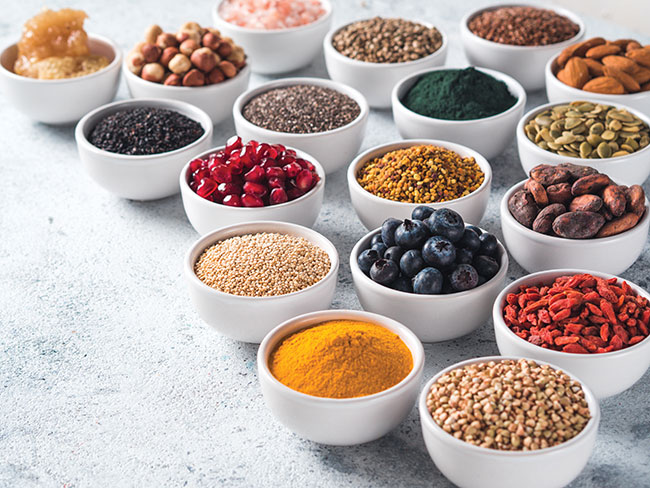Introduction
In the world of nutrition, the term “superfoods” is everywhere. From grocery store aisles to social media influencers, superfoods seem to promise the ultimate shortcut to health and vitality. But are superfoods worth the hype? In this article, we dive deep into what superfoods really are, the science behind their benefits, and whether they deserve their superhero status in the world of nutrition.
What Are Superfoods?
Superfoods are nutrient-rich foods thought to be particularly beneficial for health and well-being. These foods are often high in vitamins, minerals, antioxidants, and fiber. While the term “superfood” isn’t a scientific classification, it is commonly used to describe foods that have a high concentration of nutrients and are linked to various health benefits.
Popular superfoods include:
- Blueberries
- Kale
- Salmon
- Chia seeds
- Quinoa
- Green tea
These foods are praised for their ability to boost immunity, improve brain function, and support heart health.
The Science Behind Superfoods
While superfoods are nutrient-dense, it’s important to ask, are superfoods worth the hype? Scientific research shows that many of these foods are indeed packed with beneficial compounds like antioxidants, which help combat oxidative stress and reduce the risk of chronic diseases. For instance, blueberries are rich in anthocyanins, which have been shown to support brain health and reduce the risk of heart disease. Similarly, salmon is a powerhouse of omega-3 fatty acids, essential for heart and brain function.
However, no single food, no matter how nutritious, can provide all the nutrients your body needs. A balanced diet with a variety of foods is crucial to long-term health.
Common Myths About Superfoods
With the rise of the superfood trend, several myths have emerged, often leading to confusion. Let’s debunk some of these myths:
- Myth 1: Superfoods are a quick fix. Many believe that consuming superfoods alone will dramatically improve their health. In reality, while superfoods can contribute to a healthy diet, they are not miracle workers. Overall dietary patterns matter more than any single food.
- Myth 2: You need exotic superfoods to be healthy. Foods like goji berries and spirulina are often touted as must-haves, but you don’t need expensive or rare items to reap health benefits. Many common foods, like apples and spinach, are just as nutritious.
- Myth 3: Superfoods can replace medication. Although superfoods are nutrient-dense, they cannot replace prescribed medications or treatments for medical conditions. Always consult with a healthcare professional before making drastic changes to your diet or health regimen.
How to Incorporate Superfoods into Your Diet
If you’re looking to enhance your nutrition with superfoods, the key is balance. Here are a few tips for incorporating them into your meals:
- Start your day with a superfood smoothie. Add a handful of spinach, chia seeds, and blueberries to your morning smoothie for a nutrient boost.
- Swap snacks for superfood alternatives. Instead of processed snacks, try raw nuts, seeds, or a piece of fruit like an apple or a handful of goji berries.
- Add superfoods to your salads. Sprinkle quinoa or flaxseeds onto salads, or throw in kale and avocado for added nutrients.
Remember, while are superfoods worth the hype is an important question, it’s the consistent inclusion of nutrient-dense foods, rather than reliance on trendy ingredients, that will make the difference.
Conclusion
Superfoods can play an important role in a balanced diet, but they aren’t a silver bullet for health. The next time you ask yourself are superfoods worth the hype, remember that a varied and balanced approach to nutrition will always be more effective than focusing on a handful of “super” ingredients. Eating a wide range of whole foods—both familiar and exotic—will help you maintain optimal health.
Boost Your Nutrition with AI-Powered Wellness Mobile Software

Incorporating superfoods into your diet is a great start, but understanding your overall nutritional intake is essential for reaching your health goals. Our AI-powered wellness mobile software is designed to help users analyze their daily nutrition consumption and provide personalized suggestions for improvement. Whether you’re focused on weight management, diabetes care, or general nutrition, our software uses AI to offer tailored feedback.
If you have more specific questions or concerns, the app also connects users with professional registered dietitians (RDs) for one-on-one consultations. And for US-based users, you can even use your insurance to get free nutrition consulting with an RD. As we continue to develop the app, we’ll also expand to include features for eating disorders and mental therapy.

